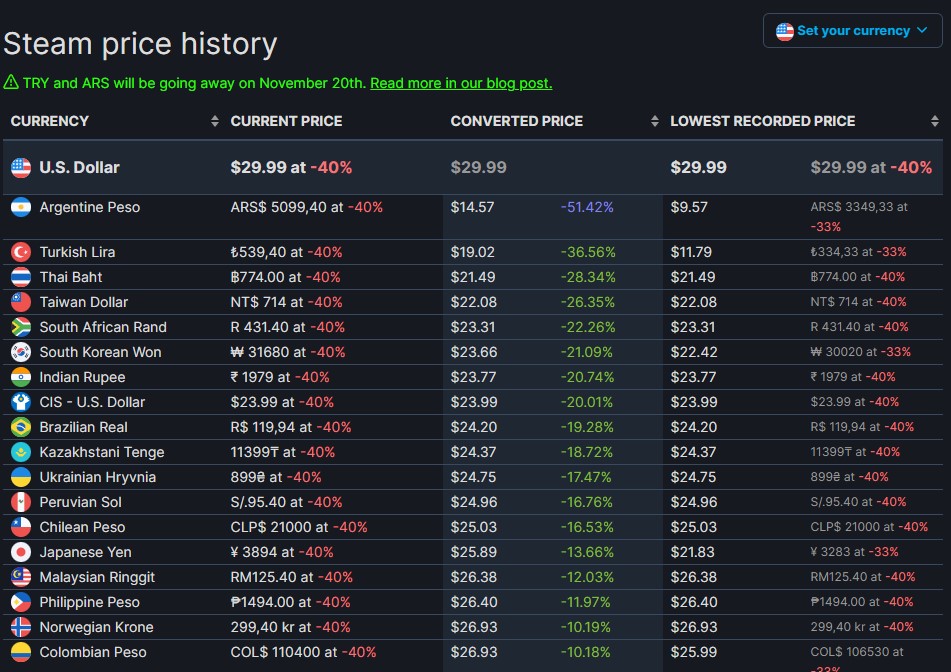In the ever-evolving landscape of gaming, the question of whether PC games are subject to region locking is one that frequently piques the curiosity of players. It’s a query that draws interesting comparisons with its console gaming counterparts.
Unlike consoles, which often grapple with region locking due to their proprietary hardware, PCs have historically offered a greater degree of freedom in this particular regard. In this post, we are going to take a look at whether PC games are region-locked or not and to what extent.
Freedom on PC Gaming

The PC gaming ecosystem, in its essence, is characterized by its openness and versatility. Unlike console gaming, where proprietary hardware often dictates the rules, PC games are, by and large, not as susceptible to stringent region locking.
This sense of liberation stems from the very structure of PC gaming. Most major game distributors and platforms, including industry giants like Steam, Epic Games Store, Origin, and others, tend to adopt a more permissive approach. In practical terms, this means that when you acquire a PC game from these platforms, you’re usually not bound by strict geographical limitations.
Gamers from different corners of the world can come together to share experiences without the shackles of region-based restrictions. It’s a testament to the global reach of PC gaming, where players can connect, compete, and cooperate, regardless of their physical location.
Are PC Games Region Locked?
It’s worth noting that while PC gaming is generally celebrated for its freedom from regional constraints, there can still be instances where certain game publishers and developers choose to introduce regional restrictions for various reasons.
These restrictions may occur in different ways including limiting access to specific in-game content, such as downloadable content (DLC), and adjusting the pricing structure based on geographical regions. While such cases are not as widespread in the PC gaming sphere as they are in the console world, they do occasionally occur.
In the vast tapestry of PC gaming, the overarching theme remains one of openness and inclusivity. The flexibility and competitive spirit among distributors and resellers, coupled with the absence of platform-specific hardware constraints, contribute to a gaming environment that is genuinely accommodating to players from diverse corners of the globe.
Regional Restrictions on PC Games

While PC gaming is synonymous with freedom and open accessibility, it’s essential to recognize that not all PC games are entirely devoid of regional restrictions. Some game publishers and developers may opt to implement these restrictions for a variety of reasons.
In this section, we’ll take a closer look at the presence of regional restrictions and why they may exist in the world of PC gaming.
The Presence of Regional Restrictions

Although PC gaming is celebrated for its global reach and flexibility, certain games or specific aspects of games can indeed be subject to regional restrictions. These restrictions are introduced with the aim of controlling and customizing the gaming experience based on the geographical location of the player.
For instance, some publishers may choose to release a game with region-specific pricing. This means that the cost of the game can vary depending on where the player is located. Such pricing adjustments may be influenced by factors like local economies and market conditions. Additionally, some games may have different release dates in various regions, possibly due to localization efforts or marketing strategies.
Furthermore, downloadable content (DLC) for PC games is another area where regional restrictions may come into play. In some cases, certain DLC packs or content updates may only be accessible to players in specific regions. This can affect the overall gaming experience, particularly in titles where DLC plays a significant role.
Why do Developers and Publishers Implement Regional Restrictions?
The decision to introduce regional restrictions in PC gaming is multifaceted and can vary from one publisher or developer to another. Some common reasons behind the implementation of regional restrictions include:
- Pricing Strategies: Adjusting game prices based on regional economic conditions and market demand can help make games more accessible to players in different parts of the world.
- Localization: Some games undergo localization efforts to cater to specific regions, which may result in staggered release dates and tailored content for different locales.
- Regulatory Compliance: Compliance with local laws and regulations, such as age ratings and content restrictions, can necessitate regional variations in-game content.
- Market Control: Regional restrictions can also serve as a means to maintain control over distribution and prevent players from accessing games or content that haven’t been officially authorized in their region.
Conclusion
While PC gaming is generally known for its freedom and lack of strict region locking, it’s essential for players to be aware of potential regional restrictions that may apply to specific titles. Checking the policies and regional restrictions imposed by individual game publishers or developers is advisable when purchasing and enjoying PC games to ensure a smooth and tailored gaming experience that aligns with one’s geographical location.





